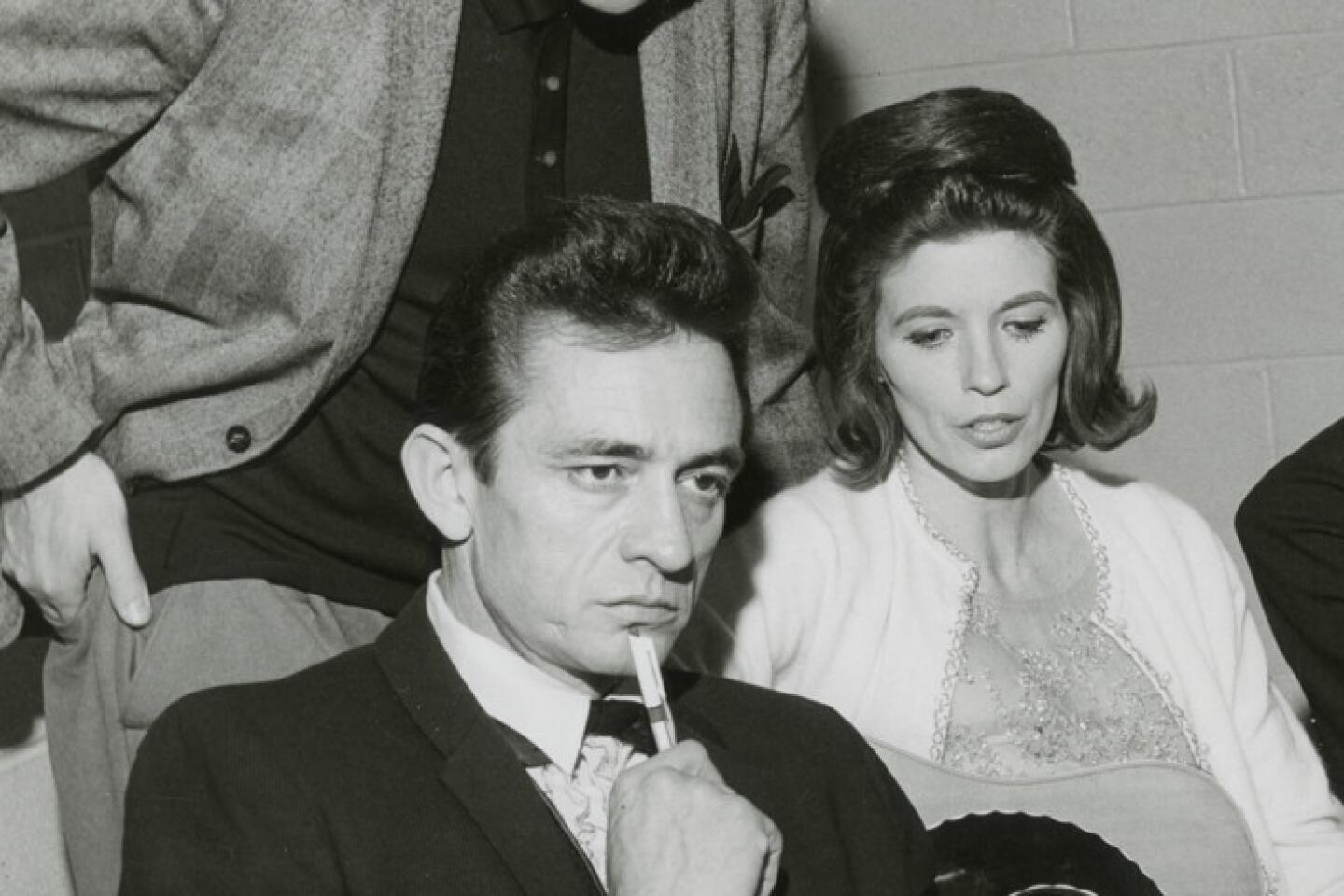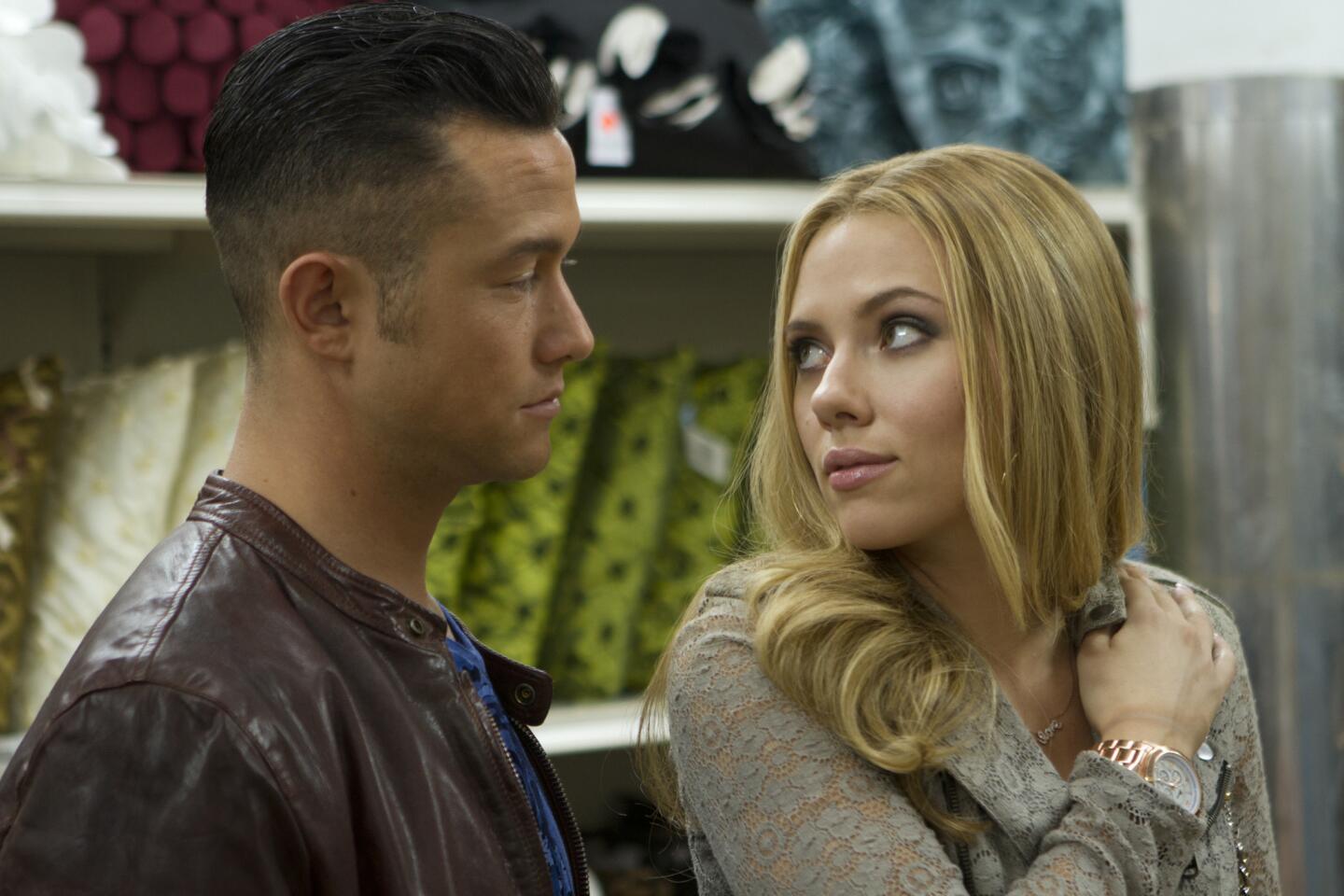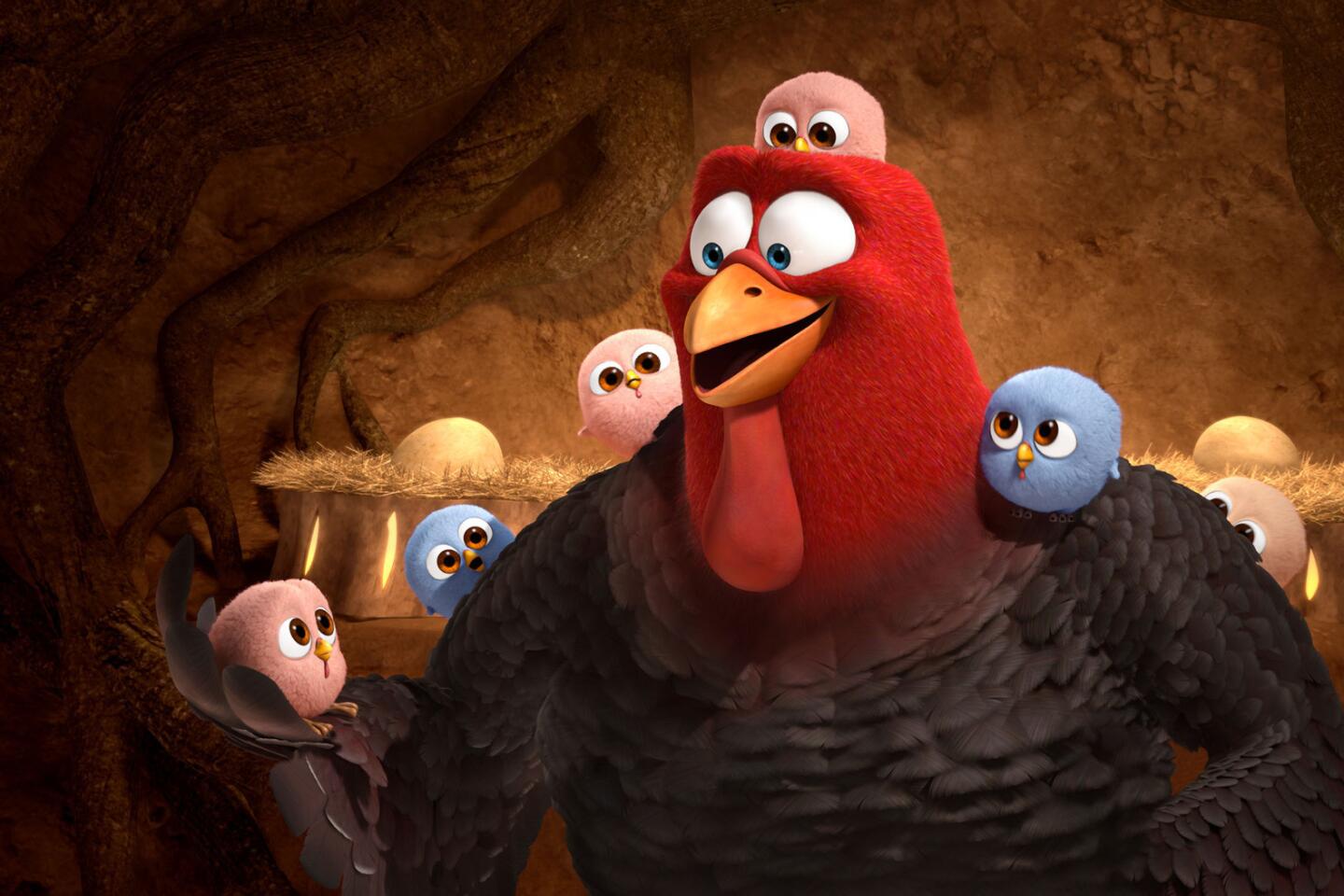Review: Death and the Beats’ birth drive ‘Kill Your Darlings’
- Share via
Early on in “Kill Your Darlings,” 18-year-old Allen Ginsberg, played by Daniel Radcliffe, is on a freshman orientation tour of the Columbia University library when a fellow student jumps on a desk and begins quoting Henry Miller. Shouting provocative language from a banned book in a staid library is not just a singular act of rebellion, it’s a glimpse of the literary anarchy to come and a look at Lucien Carr (Dane DeHaan), Ginsberg’s first love.
It is also America circa 1944 — homophobic, sexually repressed, obsessed with convention and about to be shaken by the Beat generation. The intellectual outrage of Ginsberg, Jack Kerouac and William Burroughs in seminal works such as “Howl,” “On the Road” and “Naked Lunch” will come later. The movie is all about before. The birth pangs of Beat.
Director John Krokidas’ “Kill Your Darlings,” co-written with Austin Bunn, zeros in on the transformative year when Ginsberg, Kerouac and Burroughs first meet. A smoky, sultry haze of jazz, sex, drugs, debates and death all swirling around the charismatic Carr, a Freudian tragedy portrayed with endless shadings by DeHaan.
PHOTOS: Billion-dollar movie club
The film’s got an indie-appropriate ensemble, beginning with Radcliffe as the Beat poet in his post-”Harry Potter” push to diversify. Jack Huston, yes of that legendary Hollywood family, is the raw-boned brute Kerouac. Ben Foster steps in as Burroughs, mumbling a few dry observations, but mostly minding the drugs, including the heroin that would enslave him and unleash him, chronicled unforgettably in “Junkie,” his first novel.
The story is anchored by Ginsberg’s coming of age, coming out. A shy, studious teen, his relatively cloistered upbringing undergoes a seismic shift upon entering the chaotic world of college with all its liberations, libations and frustrations. There is a kinetic, tabloid energy driving the action as Ginsberg’s sexual and intellectual passions rise. Imagery and editing deconstruct a scene of Ginsberg and Carr deconstructing language, for example. A wall filling up with words cut from pages of books is a visual fugue that rocks.
As does Lucien Carr. He is the catalyst for most of what happened that year, including the brutal death of his older lover, David Kammerer. Michael C. Hall surrenders his serial killing “Dexter” to take on the man who deflowers Carr as a boy, then follows him to New York and fuels his downfall.
PHOTOS: Hollywood backlot moments
The film begins with Kammerer dead, Carr behind bars and Ginsberg having written an account of the night in question. Whether it is fact or fiction, Carr knows it will destroy him. Their exchange over Ginsberg’s words ends in a scream. It’s clearly more complicated than that, and the narrative thread spends its time untangling the various entanglements.
Carr is one you may not know, his name prominent in Ginsberg’s initial dedication of “Howl.” Carr demanded it be removed. This is the man the movie is really about. Arrogant, entitled, impossible to resist, Lucien was the lithe blond boy they all loved a little too much, including the filmmakers.
It makes for a movie whose allegiance is constantly divided. Radcliffe may be the marquee name behind the advertising, but DeHaan’s performance is the reason to see the film. The actor, who first drew notice as another troubled youth in HBO’s “In Treatment,” brings such a complex mix of bravado and vulnerability to Lucien, you feel an absence any time he leaves the screen.
PHOTOS: Celebrities by The Times
Radcliffe does accomplish one of his objectives. There are no traces of Harry to be found; the actor demonstrates he can do more than battle Voldemort. But Ginsberg’s arc of devoted son dealing with a mentally unbalanced mother (Jennifer Jason Leigh) and a failed poet (David Cross) of a father feels distracting, rather than defining. And his emerging sexuality is strangely proper. The romance between Ginsberg and Carr never quite reaches the intensity it needs; their intellectual grappling is far more intriguing terrain.
Meanwhile, Kerouac’s own struggles with his sexuality, fighting with girlfriend Edie Parker (Elizabeth Olsen), spending his nights hanging with the guys, is offered in only the broadest strokes. And like his character, Huston’s presence is barely felt.
Hall, however, is excellent as a man driven by love and guilt, an actor gifted at unearthing obsessions. Kammerer’s intellectual jabs at Ginsberg, his chief rival for Lucien’s affections, are among the film’s most scorching. His desperation the most affecting.
New York of the 1940s is sepia-tinged and almost as seductive to look at as Lucien. Director of photography Reed Morano shoots low and wide to eliminate skyscrapers that now rise above period-perfect brownstones. Inside, production designer Stephen Carter and costume designer Christopher Peterson create a well-turned-out man’s world of browns, tweeds and cigars. Indeed, the women are little more than accessories.
For all of the often interesting attempts at generating a kind of outrage and invention of its own, “Kill Your Darlings,” like Kammerer, feels like it is trying too hard. Far too conventional underneath all the trappings, you wish it would howl.
‘Kill Your Darlings’
MPAA rating: R for sexual content, language, drug use and brief violence
Running time: 1 hour, 44 minutes
Playing: At ArcLight Hollywood; Landmark Theatre, West Los Angeles
More to Read
Only good movies
Get the Indie Focus newsletter, Mark Olsen's weekly guide to the world of cinema.
You may occasionally receive promotional content from the Los Angeles Times.













